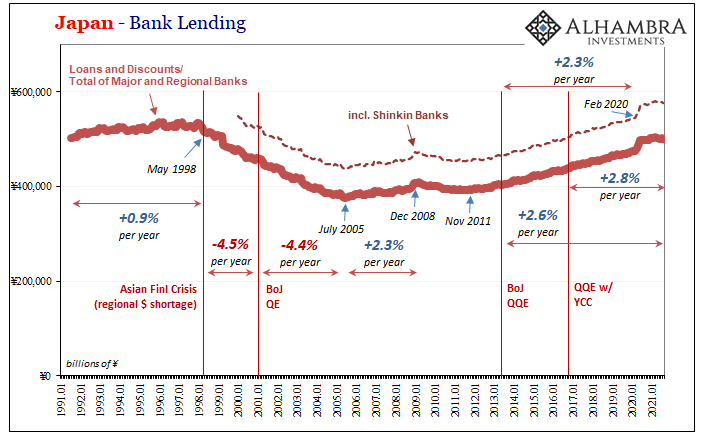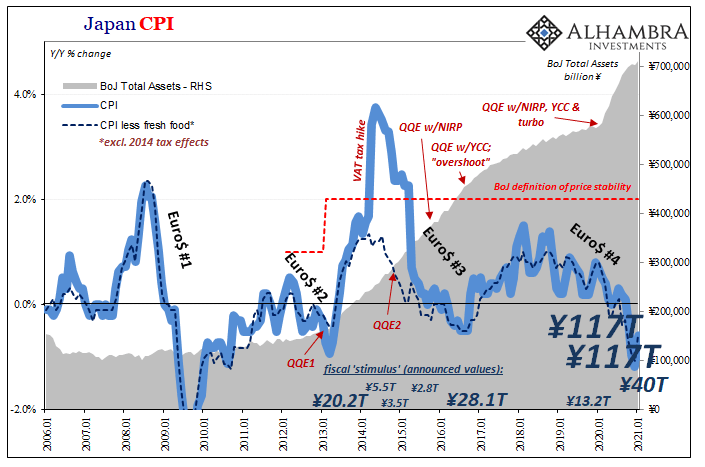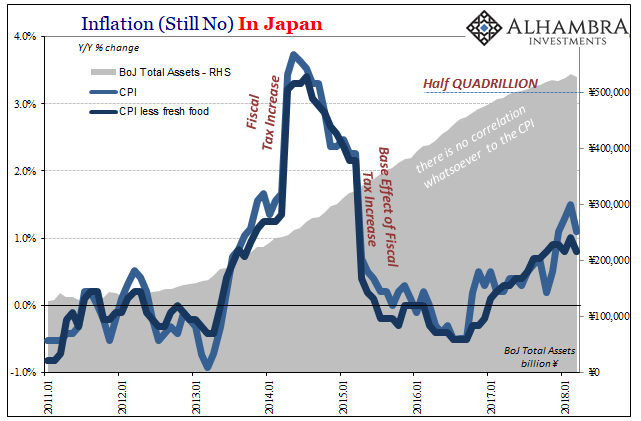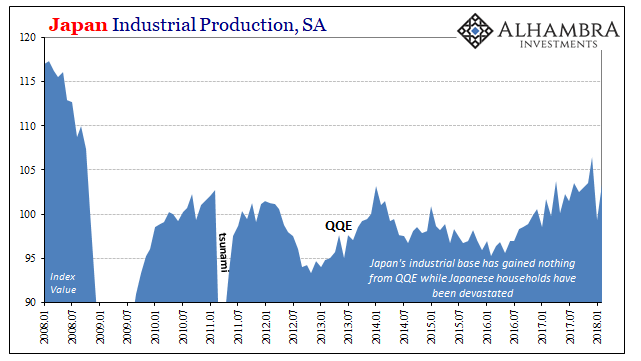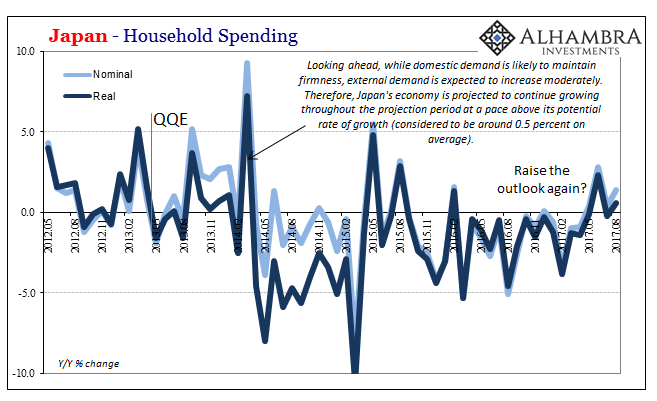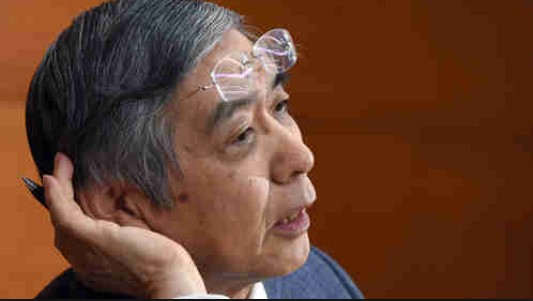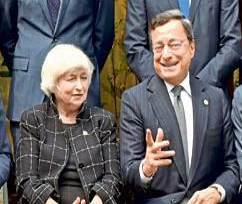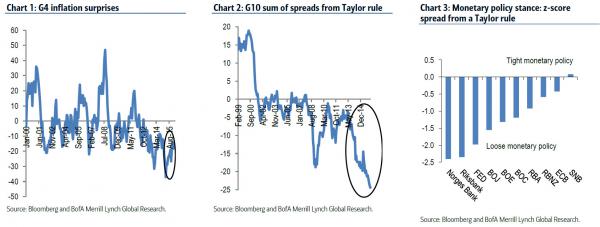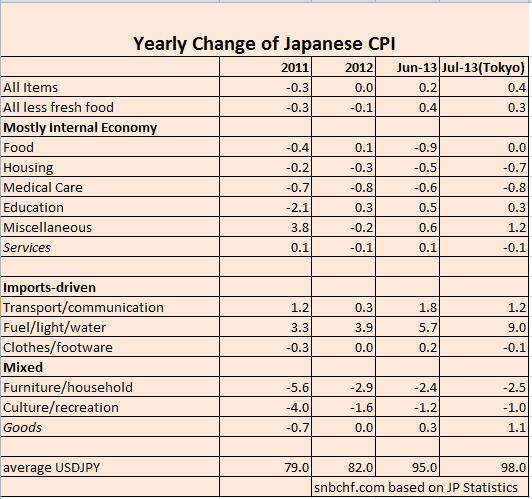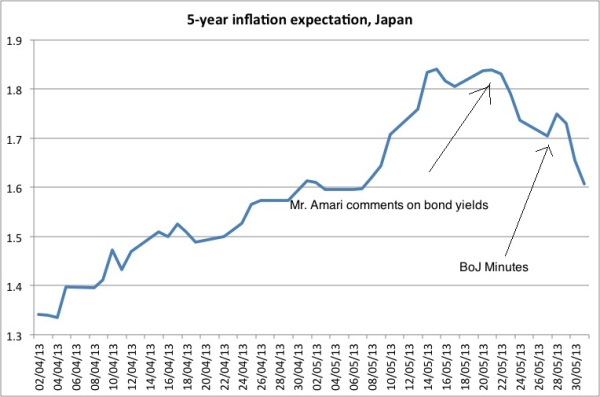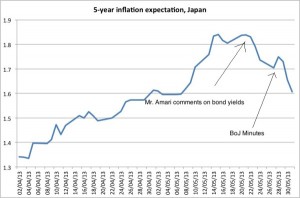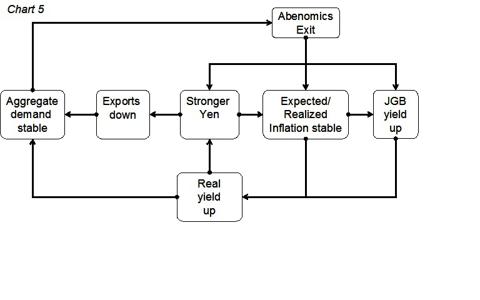Tag Archive: Abenomics
You Don’t Have To Take My Word For It About Eliminating QE
You don’t have to take my word for it. QE doesn’t work and it never has. That’s not just my assessment, pull out any chart of interest rates for wherever gets the misfortune of having been wasted with one of these LSAP’s.
Read More »
Read More »
Nine Percent of GDP Fiscal, Ha! Try Forty
Fear of the ultra-inflationary aspects of fiscal overdrive. This is the current message, but according to what basis? Bigger is better, therefore if the last one didn’t work then the much larger next one absolutely will. So long as you forget there was a last one and when that prior version had been announced it was also given the same benefit of the doubt.
Read More »
Read More »
Transitory’s Japanese Cousin
Thomas Hoenig was President of the Federal Reserve’s Kansas City branch for two decades. He left that post in 2011 to become Vice Chairman of the FDIC. Before that, Mr. Hoenig as a voting member of the FOMC in 2010 cast the lone dissenting vote in each of the eight policy meetings that year (meaning he was against QE2, too). This makes him, apparently, the hawk of all hawks.
Read More »
Read More »
The Best ‘Reflation’ Indicator May Be Japanese
Japanese industrial production dropped sharply in January 2018, Japan’s Ministry of Economy, Trade, and Industry reported last month. Seasonally-adjusted, the IP index fell 6.8% month-over-month from December 2017. Since the country has very little mining sector to speak of, and Japan’s IP doesn’t include utility output, this was entirely manufacturing in nature (99.79% of the IP index is derived from the manufacturing sector).
Read More »
Read More »
Japan Is Booming, Except It’s Not
Japan is hot, really hot. Stocks are up to level not seen since 1996 (Nikkei 225). Prime Minister Shinzo Abe called snap elections in Parliament to secure a supermajority and it worked. Things seem to be sparkling all over the place, with the arrow pointing up: “Hopes for a global economic recovery and US shares’ strength are making fund managers generous on Japanese stocks,” said Chihiro Ohta, general manager of investment research at SMBC Nikko...
Read More »
Read More »
Abe’s Fiscal Policy: More of the Same
Japan's fiscal stimulus if smaller than it appear and is unlikely to boost the economy as much as officials may think. The problem in Japan is not that interest rates are too high or that pubic investment is too weak. The risk is that the yen strengthens further, and we suggest the dollar may fall toward JPY94.60.
Read More »
Read More »
No Big Thoughts, but Several Smaller Observations
Notable that as the CRB Index moves lower, MSCI emerging market equities have done well. European banks are retreating after the stress test results. Tokyo elected its first women governor as this seem to be in part a sign of protest against Abe.
Read More »
Read More »
FX Weekly Preview: BOJ and FOMC Meetings Featured in the Last Week of July
A recent Reuters poll found about half of the 100 economists surveyed expect a hike in Q4, which really means December since the November meeting is too close to the national election. The other half is split between a Q3 rate hike (September) and some time in 2017. That said, two primary dealers anticipate no hike until the end of 2017.
Read More »
Read More »
“It’s Prohibited By Law” – A Problem Emerges For Japan’s “Helicopter Money” Plans
Over the past four days, risk assets have been on a tear, led by the collapsing Yen and soaring Nikkei, as the market has digested daily news that - as we predicted last week - Bernanke has been urging Japan to become the first developed country to unleash the monetary helicopter, in which the central banks directly funds government fiscal spending, most recently with an overnight report that Bernanke has pushed Abe and Kuroda to sell perpetual...
Read More »
Read More »
Stockman Rages: Ben Bernanke Is “The Most Dangerous Man Walking This Planet”
Ben Bernanke is one of the most dangerous men walking the planet. In this age of central bank domination of economic life he is surely the pied piper of monetary ruin. At least since 2002 he has been talking about “helicopter money” as if a notion which is pure economic quackery actually had some legitimate basis.
Read More »
Read More »
BofA: To Save Markets Central Banks Just Made Inequality And Populism Even Worse
There is a large dose of irony to the post-Brexit market response: while on one hand stocks have soared and as of today the S&P500 has already recouped more than half its post-Brexit losses (the SPX sank 5.7% peak-to-trough since the referendum and has since bounced 3.5%) an even sharper reaction has been observed in bonds.
Read More »
Read More »
G7 Summit: Risk of a Global Crisis, Maritime Disputes and the Dollar
The G7 heads of state summit has begun. The host, Japan’s Prime Minister Abe began with doom and gloom. Accounts suggest he warned of the risk of a crisis on the scale of Lehman if appropriate policies are not taken. It is not clear to whom Abe was addressing. It may not have been the … Continue...
Read More »
Read More »
Daily FX, May 13: Toward a New Mouse Trap
The Great Financial Crisis has exposed a deep chasm in economics and economic policy. No single institution is this crystallized more than at the Bank of Japan. The former Governor, Shirakawa brought policy rates to nearly zero to combat deflation. His successor, Kuroda, took the central bank in the completely other direction. He has introduced three …
Read More »
Read More »
Bank Of America Reveals “The Next Big Trade”
Markets have stopped focusing on what central banks are doing and are "positioning for what they believe central banks may or may not do," according to BofA's Athanasios Vamvakidis as he tells FX traders to "prepare to fight the central banks," as th...
Read More »
Read More »
More Thoughts about the Yen
Every so often there is a market move that appears inexplicable. The conundrum now is the yen's strength. Of course, there are numerous attempts to shed light on the yen's rise, but many, like ourselves, are not very satisfied.
Perhaps par...
Read More »
Read More »
(5.6.1) Crowther’s Balances and Imbalances of Payments: METI Paper
The former chief editor of "The Economist" Geoffrey Crowther published a great work on the development of balance of payments and current accounts over the long-term. It divides development into six phases, which are analogous to Shakespeare's seven phases of life.
The seven stages are:
Young debtor nation, Mature debtor nation, Debt repayment nation, Young creditor nation, Mature creditor nation, Credit disposition /Asset Liquidation nation and...
Read More »
Read More »
(5.6) The Holy Grail of Long-Term Currency Movements: Crowther’s Balances and Imbalances of Payments
The former chief editor of "The Economist" Geoffrey Crowther published a great work on the development of balance of payments and current accounts over the long-term. It divides development into six phases, which are analogous to Shakespeare's seven phases of life.
The seven stages are:
Young debtor nation, Mature debtor nation, Debt repayment nation, Young creditor nation, Mature creditor nation, Credit disposition /Asset Liquidation nation and...
Read More »
Read More »
Michael Pettis: Abenomics is just a measure to enforce higher household savings
This article by Michael Pettis remains one of the most important contributions on Abenomics. If anybody wondered by GDP contracted in 2014. It is not only the sales tax but even more the weak yen that forces people to save more.
Both companies and finally also consumers are savings more. Companies do not invest.
Read More »
Read More »
Abenomics Succeeding? Don’t Believe the Mainstream Media, Just Energy and Import Prices Are Higher
While the FT says: Abenomics is succeeding in bringing inflation back to Japan. The preferred core CPI measure, which excludes volatile food prices, rose a higher-than-anticipated 0.4 per cent in June (year-over-year), the highest reading since November 2008 and the first positive reading since April 2012. (The reading was flat in May). Overall inflation …
Read More »
Read More »
Has Abenomics Failed? Let us Go for Exchange Rate Targeting and Maintain Stability
Abenomics has failed It was doomed from the very beginning. You cannot create out of risk-averse Japanese risk-tolerating Americans. Public Japanese opinion puts enormous pressure on BoJ policy and on the government; the risks of rising JGB yields are too high. Japanese hate volatility, the government cannot risk its funding. The emphasis on the word …
Read More »
Read More »









